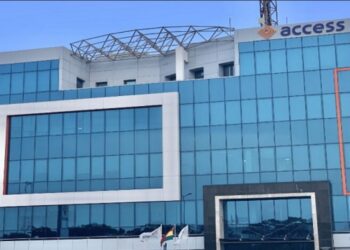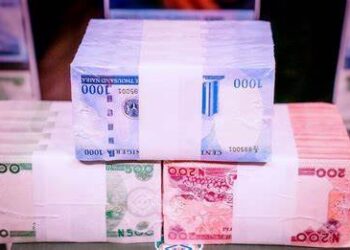Oil marketers have described the N50 stamp duty charge introduced by the Central Bank of Nigeria as unfair and inequitable for petrol dealers.
Chief Executive Officer and Executive Secretary, Major Oil Marketers Association of Nigeria (MOMAN), Clement Isong, explained that the association was engaging the Petroleum Products Pricing Regulatory Agency (PPPRA) and the Central Bank of Nigeria (CBN), and other relevant stakeholders on the N50 charge.

“There is a problem with this. So, we are engaging with the PPPRA, the CBN, Ministry of Petroleum Resources and the NNPC. They understand our argument. We are trying to make sure that we find a reasonable solution to the problem, and I have no doubt that the government will find a reasonable way out for us,” Isong said.
What you need to know: After the CBN in a circular in 2019 asked banks to unbundle merchant settlement amounts and charge applicable taxes and duties on individual transactions, the banks were also asked to charge a duty of N50 for services rendered through electronic transfers.
[READ MORE: Nigeria’s retail outlets risk CBN sanction, debit N50 PoS fee from customers)
The apex bank explained that it was wrong to charge customers while the Federal Competition and Consumer Protection Commission on December 24 directed that the charge on customers be halted.
Isong and other oil marketers seem to have an issue with the directive of Federal Competition and Consumer Protection Commission and have asked for an exemption also.
“It has taken a bit of time because it is not so easy, but what we are asking for is an exemption of petrol sales,” Isong said.
The MOMAN boss, while explaining the reasons for the request, stated that many petrol stations were rented from oil marketing companies, and petrol dealers could not afford to bear the N50 PoS charge.
“Why this (PoS charge), it is completely unworkable because the merchant must sell at least 22 litres to make that N50 first because he gets N2.36 as his margin. In Nigeria, the average off-take of a vehicle is less than N2, 000, which is 13.7 litres.
“In the price template from the PPPRA, the dealer gets N2.36 per litre. If a fuel station sells 100,000 litres in a month, its revenue is N236, 000, and from that N236, 000, he will pay his rent, electricity bill, staff, and fuel and maintain generators. Then he suffers losses because petrol is a product that is volatile; it evaporates,” Isong said.





















